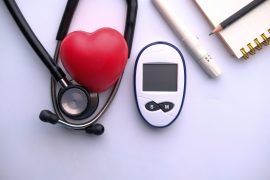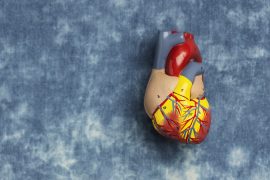Cardiovascular disease continues to be the leading cause of death and disability worldwide. According to the World Health Organization, more people die (around 17.9 million every year) from CVDs worldwide than from any other disease. About 80% of these deaths are due to coronary heart diseases (eg. heart attack) and cerebrovascular diseases (eg strokes). For both men and women, heart attack remains one of the leading causes of death but they may experience the symptoms of the disease a little differently. It is not necessary that the most typical signs e.g pain in the left hand is what a woman would experience while she is having a heart attack. Aged women above 65 years are more likely to have a heart attack but unhealthy lifestyle habits can also expose younger women to CVDs. Understanding the female-specific symptoms could help an individual seek medical attention faster, which could prove to be life-saving. Let us now take a look at some warning signs of a heart attack that every woman should know and shouldn’t be overlooked at any cost.
1. Chest pain/ Angina:
This symptom is the most common hint of a heart attack. A woman could experience pain in any part of the chest and not just the left side. It is usually a feeling of tightness and extreme pressure in your chest.



2. Pain in Back, Arms, Neck, and Jaw
This type of symptom is slightly abrupt and gradually increases. It can come and go anytime and anywhere including both your arms at one time, back, or even neck. This kind of pain may be extreme and can wake you up from sleep. Even the jaw pain could be either on the left or right.
3. Stomach Pain
A lot of times this pain is overlooked and treated as an acidic burn or maybe ulcer, flu, etc. But, it could be a possible warning sign of a heart attack for women. It feels like there’s extreme weight kept on your stomach.



4. Shortness of breath and Nausea
This could occur at one of the most unusual times for instance while you are resting and there’s no physical activity involved. This may increase over time and also lead to stress.



5. Sweating
A woman may experience this even in cool places. A nervous, cold sweat without a possible reason can be taken as a sign of a heart attack. It is very different than your regular warm sweats after a good run.
6. Fatigue
This feeling is natural when you have a lot of tasks to finish but when you feel the same at a time when you haven’t exerted yourself could be a cause of worry.



And, once you recognize these symptoms of a heart attack, it is important to treat the situation on an emergency basis and rush to your nearest healthcare provider. Identifying the symptoms of a heart attack can save your and other’s life. Ideally calling for an ambulance is the safest way to go about it. Self-driving may worsen the situation and put you in more danger.
Heart attack prevention
Now that we have discussed the symptoms of a heart attack, let us move towards three key factors that can help prevent a heart attack.
Quit smoking and limit alcohol
Smoking increases the fatty deposits in the arteries which increases blood clotting and affects the blood lipid levels. Also, nicotine is the primary reason to accelerate the heart rate and increase blood pressure. Drinking too much alcohol can also raise blood pressure, increase cardiomyopathy, stroke, cancer, and other diseases.
Physically active
Doing any physical activity like weight training, endurance training, or playing any sport can boost our heart health. Even a 30 mins brisk walk every day can do wonders to your heart. Studies say that people who have achieved even a moderate level of fitness are less likely to die early than those with a low fitness level.
Good nutrition
The most important thing for any human body is the quality of food that we consume. Making the right food choices and having a healthy mix of protein, carbs, and fats in your diet can keep your heart health on top. It is also crucial to managing a ratio of bad vs good cholesterol. Intake of vegetables, fruits, and whole grains; includes low-fat dairy products, poultry, fish, legumes, nontropical vegetable oils, and nuts; and limits intake of sweets, sugar-sweetened beverages, and red meats can boost your heart health.
Lastly, routine check-up and discussion about your risk factors with your healthcare provider before making any alterations is a must. A heart attack is a serious and most fatal medical event that requires emergency treatment and any symptoms should never be taken lightly. Right know-how and awareness can improve outcomes and prevent complications in the future.




